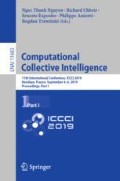Abstract
Segmentation which is identification of regions of interest (ROIs) in medical images is a very important step for image analysis in computer-aided diagnosis systems. Accurate segmentation of skin lesions images plays a vital role in efficient diagnosis of melanoma skin cancer. Diagnosis of melanoma cancer through the segmentation of skin lesions is a challenging task due to possible presence of noise and artefacts such as hairs, air or oil bubbles on the skin lesion images. Skin lesions images are also sometimes characterized with weak edges, irregular and fuzzy borders, marks, dark corners, skin lines and blood vessels on skin lesions. Recently, segmentation methods based on Fully Convolutional Encoder-Decoder Architecture (FCEDA) have achieved great success in medical images. This work presents automatic skin lesion segmentation method that is based on Fully Convolutional Encoder-Decoder Architecture. Two types of FCEDA namely U-Net and SegNet architectures, have been examined and utilized for segmentation of skin lesion images. The performance analysis of the two architectures have been conducted. Evaluation and comparison of these two architectures were also carried out. This work finds out and proposes possible improvements of these methods on the segmentation of skin lesions. It is also a systematic comparison of U-Net and SegNet models on the segmentation of skin lesion images. The paper discovers how deep learning methods can be explored using a supervised approach to get accurate results with less complexity possible. The models were evaluated on skin lesion challenge dataset in ISIC 2018 dermoscopic images archives.
Access this chapter
Tax calculation will be finalised at checkout
Purchases are for personal use only
References
Razzak, M.I., Naz, S., Zaib, A.: Deep learning for medical image processing: overview, challenges and the future. In: Dey, N., Ashour, A.S., Borra, S. (eds.) Classification in BioApps. LNCVB, vol. 26, pp. 323–350. Springer, Cham (2018). https://doi.org/10.1007/978-3-319-65981-7_12
Long, J., Shelhamer, E., Darrell, T.: Fully convolutional networks for semantic segmentation. In: Proceedings of the IEEE Conference on Computer Vision and Pattern Recognition, pp. 3431–3440 (2015)
Bi, L., Kim, J., Ahn, E., Feng, D., Fulham, M.: Semi-automatic skin lesion segmentation via fully convolutional networks. In: 2017 IEEE 14th International Symposium on Biomedical Imaging (ISBI 2017), pp. 561–564. IEEE (2017)
Ibtehaz, N., Sohel Rahman, M.: MultiResUNet: rethinking the U-Net architecture for multimodal biomedical image segmentation (2019). arXiv preprint: arXiv:1902.04049
Badrinarayanan, V., Kendall, A., Cipolla, R.: SegNet: a deep convolutional encoder-decoder architecture for image segmentation. IEEE Trans. Pattern Anal. Mach. Intell. 39(12), 2481–2495 (2017)
Jian, J., et al.: Fully convolutional networks (FCNs)-based segmentation method for colorectal tumors on T2-weighted magnetic resonance images. Australas. Phys. Eng. Sci. Med. 41(2), 393–401 (2018)
Bi, L., Kim, J., Ahn, E., Kumar, A., Fulham, M., Feng, D.: Dermoscopic image segmentation via multistage fully convolutional networks. IEEE Trans. Biomed. Eng. 64(9), 2065–2074 (2017)
Adeyinka, A.A., Viriri, S.: Skin lesion images segmentation: a survey of the state-of-the-art. In: Groza, A., Prasath, R. (eds.) MIKE 2018. LNCS (LNAI), vol. 11308, pp. 321–330. Springer, Cham (2018). https://doi.org/10.1007/978-3-030-05918-7_29
Pennisi, A., Bloisi, D.D., Nardi, D., Giampetruzzi, A.R., Mondino, C., Facchiano, A.: Skin lesion image segmentation using Delaunay Triangulation for melanoma detection. Comput. Med. Imaging Graph. 52, 89–103 (2016)
Alom, M.Z., Hasan, M., Yakopcic, C., Taha, T.M., Asari, V.K.: Recurrent residual convolutional neural network based on U-Net (R2U-NET) for medical image segmentation (2018). arXiv preprint: arXiv:1802.06955
Chen, L.-C., Zhu, Y., Papandreou, G., Schroff, F., Adam, H.: Encoder-decoder with atrous separable convolution for semantic image segmentation. In: Ferrari, V., Hebert, M., Sminchisescu, C., Weiss, Y. (eds.) ECCV 2018, Part VII. LNCS, vol. 11211, pp. 833–851. Springer, Cham (2018). https://doi.org/10.1007/978-3-030-01234-2_49
Venkatesh, G.M., Naresh, Y.G., Little, S., O’Connor, N.E.: A deep residual architecture for skin lesion segmentation. In: Stoyanov, D., et al. (eds.) OR 2.0/CARE/CLIP/ISIC 2018. LNCS, vol. 11041, pp. 277–284. Springer, Cham (2018). https://doi.org/10.1007/978-3-030-01201-4_30
Zhang, Y., Bartolome, C., Ramaswami, A.: DeepCell: automating cell nuclei detection with neural networks. cs230.stanford.edu
Bartan, B., Pao, J., Knapp, B.: Nucleus detection using deep learning. cs230.stanford.edu
Kumar, P., Nagar, P., Arora, C., Gupta, A.: U-Segnet: fully convolutional neural network based automated brain tissue segmentation tool. In: 2018 25th IEEE International Conference on Image Processing (ICIP), pp. 3503–3507. IEEE (2018)
Nanfack, G., Elhassouny, A., Thami, R.O.H.: Squeeze-SegNet: a new fast deep convolutional neural network for semantic segmentation. In: Tenth International Conference on Machine Vision (ICMV 2017), vol. 10696, p. 106962O. International Society for Optics and Photonics (2018)
Ronneberger, O., Fischer, P., Brox, T.: U-Net: convolutional networks for biomedical image segmentation. In: Navab, N., Hornegger, J., Wells, W.M., Frangi, A.F. (eds.) MICCAI 2015, Part III. LNCS, vol. 9351, pp. 234–241. Springer, Cham (2015). https://doi.org/10.1007/978-3-319-24574-4_28
Codella, N.C.F., et al.: Skin lesion analysis toward melanoma detection: a challenge at the 2017 International Symposium on Biomedical Imaging (ISBI), hosted by the International Skin Imaging Collaboration (ISIC). In: 2018 IEEE 15th International Symposium on Biomedical Imaging (ISBI 2018), pp. 168–172. IEEE (2018)
Author information
Authors and Affiliations
Corresponding author
Editor information
Editors and Affiliations
Rights and permissions
Copyright information
© 2019 Springer Nature Switzerland AG
About this paper
Cite this paper
Adegun, A., Viriri, S. (2019). Fully Convolutional Encoder-Decoder Architecture (FCEDA) for Skin Lesions Segmentation. In: Nguyen, N., Chbeir, R., Exposito, E., Aniorté, P., Trawiński, B. (eds) Computational Collective Intelligence. ICCCI 2019. Lecture Notes in Computer Science(), vol 11683. Springer, Cham. https://doi.org/10.1007/978-3-030-28377-3_35
Download citation
DOI: https://doi.org/10.1007/978-3-030-28377-3_35
Published:
Publisher Name: Springer, Cham
Print ISBN: 978-3-030-28376-6
Online ISBN: 978-3-030-28377-3
eBook Packages: Computer ScienceComputer Science (R0)

